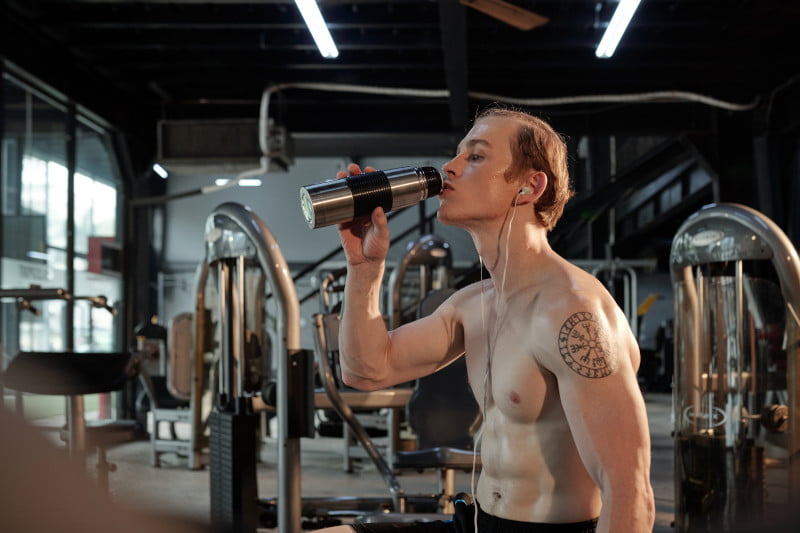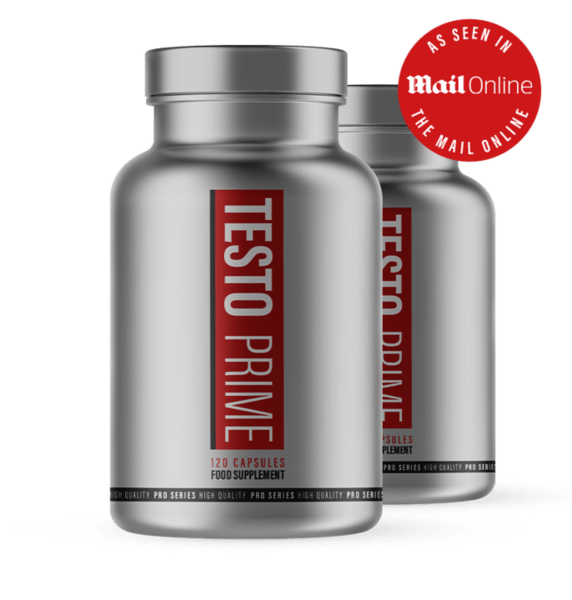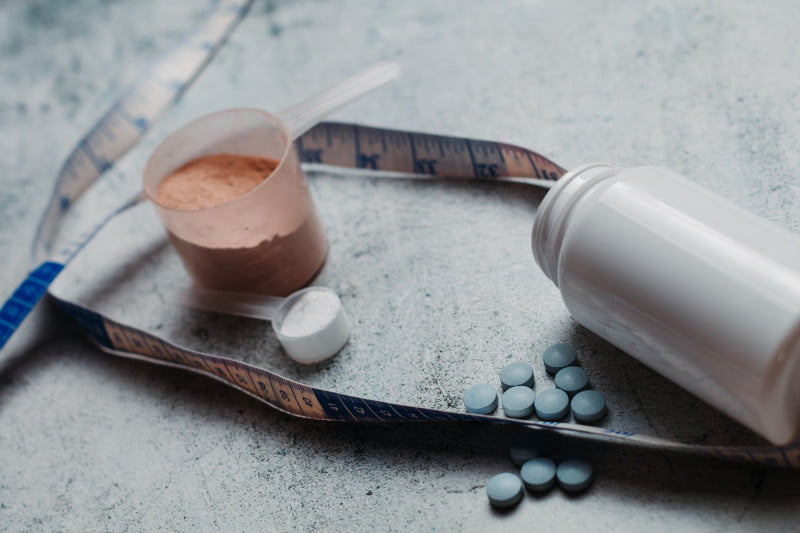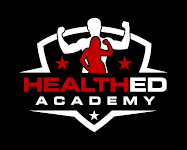What's the difference between creatine and a T-booster? Which is better?
Both of these supplements offer many benefits for improving physical performance. They can help promote muscle growth, strength, and stamina which are essential for your workout routine.
Let us walk you through both supplements — what they do, their benefits, side effects, and what they have in common.
What is Creatine?

Creatine is a supplement that is popular for improving overall physical performance.
It is composed of three amino acids: L-arginine, glycine, and L-methionine. These amino acids promote muscular gains, and increased performance and help build protein in the body along with amino acids.
Creatine is sought chiefly by pro & amateur athletes, bodybuilders, weight trainers, and others who aim to improve their physical abilities.
Creatine doesn’t just come in supplement form, though., Creatine is one of the many compounds naturally produced by the human body via the liver and kidney.
You can also get this naturally by consuming red meat and seafood.
Pros:
- Helps improve physique and healthy body functions.
- Increases energy and enhances stamina
- Aids in healing from injury or recovery after intense training sessions
Cons:
- Might cause minimal side effects (stomach ache, nausea, cramps)
- May not be suitable for people with kidney problems and those taking blood sugar maintenance meds
What Does Creatine Do?
Creatine is stored in different parts of the body that require HIGH energy output. This includes the skeletal muscles and the brain.


Although the body naturally produces creatine, added supplementation can help increase creatine phosphate (phosphocreatine), a form of stored energy in our cells.
Phosphocreatine produces the adenosine triphosphate (ATP) molecule, a quick energy source for your cells. With this, the body will be ready for sudden bursts of energy for high-intensity exercises.
Additionally, taking creatine supplements can boost strength and increase lean muscle mass.
Benefits of Creatine
Creatine has multiple benefits for physical growth and mental wellness:
- Improves athletic performance - Scientific evidence has found that creatine helps improve(1) endurance, strength, and cognitive functioning.
- Promotes growth - It aids in increasing body mass(2) by prompting water retention and improving the capacity to perform more exercises for longer.
- Helps with recovery - It helps the body recover(3) from injuries and intense training sessions by accelerating the recovery process. It may also reduce cramping and pain.


- Aids men with muscular dystrophy - It can aid individuals with muscular dystrophy(4) by increasing their strength and reducing fatigue.
- Improves cognitive functioning - It helps improve memory, intelligence, and overall cognitive function. Its effects on cognition can even aid the elderly(5).
- Helps with Parkinson's disease and depression - It may help people with Parkinson's disease by preventing the loss of brain cells. Another study(6) also showed that it could help treat similar neurodegenerative disorders.
Does Creatine Have Side Effects?
Taking creatine supplements at the right dose is proven to be safe and effective. However, you may experience some side effects like:
- Stomach pain
- Diarrhea
- Nausea
- Cramps
It's also important to note that you should AVOID taking these products if:
- You have kidney problems(7)
- You have diabetes(8) or take medication that regulates blood sugar levels
Creatine may interact with other medications, so it's best to consult your doctor first.
What are Testosterone Boosters?


As men age, their T levels decrease. Hence, many would seek other ways to increase testosterone production either through hormone replacement or taking test-boosting pills.
Test boosters are health products that, when taken, encourage the body to produce MORE testosterone.
There are different types of test boosters, but their most popular forms are oral supplements like pills and powders.
However, when supplements still can’t resolve low T levels, some men would resort to hormone replacement therapy as advised by healthcare professionals.
Pros:
- Increased T levels
- Improved physical and cognitive function
- Reduced feelings of lethargy and fatigue
- Improved mood, relieves stress, and reduces irritability
- Promotes virility and increases libido and sperm count
Cons:
- Some active ingredients may interfere with medication
- May cause some minimal side effects (nausea, upset stomach, vomiting)
What Do Testosterone Boosters Do for Your Body?
The primary goal of a T-booster supplement is to increase and maintain adequate testosterone levels in men.


There are also components in test boosters that REGULATE or SUPPRESS the estrogen (female hormone) and sex hormone-binding globulin (SHBG).
As test boosters increase testosterone levels, they also enhance physical performance, and improve cognitive function(9), and promote overall wellness.
Some brands also claim that their products can increase strength and muscular development and promote fat-burning, which is vital for weight loss and resistance training.
Benefits of Testosterone Boosters
In summary, taking testosterone boosters offer MANY benefits to its users:
- Increases physical strength, endurance, and stamina
- Promotes bone and muscle build-up
- Burns unwanted fat
- Improves cognitive functioning
- Relieves stress and moodiness
- Increases libido and sex drive
- Improves sperm count
Do Testosterone Boosters Have Any Side Effects?
Some users complain about minor side effects, such as:
- Dizziness or nausea
- Vomiting
- Upset stomach
Take note that some components of this supplement (e.g., Zinc) may INTERACT with medication.
Some ingredients can also prevent blood clotting or may lower blood sugar levels. Hence, it's best to consult your doctor first.
Creatine and Testosterone: What Do Testosterone Boosters and Creatine Have in Common?
Both creatine and testosterone carry a host of benefits for enhancing overall physical and cognitive performance and promoting physical build-up:
Exercise Performance


Both creatine and testosterone help men enhance their exercise performance, but through different mechanisms:
- Creatine supplies and stores quick-use energy in cells. With this, you'll be able to increase workout repetitions and the intensity of your training routine.
- T-boosters enhance your performance by minimizing fatigue and lethargy as well as boosting your energy levels. In turn, you'll feel a lot STRONGER and PUMPED, plus it helps increase your strength, endurance, and stamina.
Muscle Growth


These two supplementary products can also enhance your physique.
- With creatine, muscle gains are caused by water retention and enhanced training performance.
- T-boosters help you build muscle by PROMOTING higher testosterone levels, which then boost your strength and lean mass gains. enhancing muscle physical strength and endurance
Mental Energy Boost


Creatine may also boost cognition. A study(10) shows that it can enhance memory and reduce mental fatigue in some people.
It's also been shown to help with neurodegenerative diseases, like Parkinson's and Huntington's, and depression in women.
On the other hand, T-boosters are believed to enhance mood and relieve stress.
It also improves and maintains OPTIMAL cognitive skills. Additionally, older men can improve their spatial and verbal memory(11) by maintaining healthy test levels.
Should You Choose One Over the Other?
Now we're left with the major question: Which supplement should you take?
If you're young and don't have problems with your T-levels, choose creatine.


This can help you achieve a leaner build, and it will aid you in improving your training performance.
Using test boosters when your T levels are normal can have negative side effects like low sperm count, shrunken testicles, and impotence.
However, if you want to enhance your build and boost physical & mental capability, testosterone boosters are the way to go.
NOTE: Both options should always be combined with a balanced high-protein diet for the best results.
FAQ:
Is creatine better than testosterone booster?
Both of these products can have their own strengths. If you're asking for efficacy in boosting physical performance, creatine can help you best in this area. On the other hand, if your decreased performance is due to low test levels, taking T-boosting pills will help resolve your concerns.
Can I take testosterone boosters with creatine supplements?
Taking them simultaneously at the recommended dosages is safe and does not have adverse side effects for most people. Still, we advise you to consult your doctor first before supplementing your diet.
Do creatine products affect testosterone and muscles?
Creatine products can't increase or decrease T levels even at a constant dose. However, it can speed up the conversion of testosterone into dihydrotestosterone (DHT).
What does the research say about the toxicity of creatine in your body?
There are no scientific studies saying that the compound can be toxic for an individual. The International Society of Sports Nutrition(12) wasn't able to gather proof of the short and long-term effects that might harm its users.
How does creatine affect your cholesterol, testosterone levels, and other hormones?
A study found that creatine monohydrate(13) was able to lower serum total cholesterol and triglycerides among individuals with high cholesterol levels. But, there is no proof that it can alter testosterone levels in men. Similarly, it doesn't interact with other hormones either.
How many grams of creatine should you take a day?
For advanced athletes and weight trainers, the recommended dose for daily intake is 3 to 5 grams. But, if you have a normal build, 1 to 2 grams should be sufficient. For people over 200 pounds, taking 8 grams per day should be okay.
Conclusion: Testosterone Booster or Creatine Supplementation: Which One to Choose?
Creatine is the best option if you aim to enhance your physical capacity, physique, and cognitive function. It can help you feel more energized and perform better in sports and training.


However, if you're dealing with low test levels, consider adding test-boosting pills to your diet. It helps enhance your overall physical and mental capacity. These can also aid you in losing unwanted fat and achieving a leaner body.
FINAL REMINDER: Before settling on your options, always assess your body’s specific needs and consult with your doctor.
- Cooper, Robert et al. “Creatine supplementation with specific view to exercise/sports performance: an update.” Journal of the International Society of Sports Nutrition vol. 9,1 33. 20 Jul. 2012, doi:10.1186/1550-2783-9-33↩
- Wu, Shih-Hao et al. “Creatine Supplementation for Muscle Growth: A Scoping Review of Randomized Clinical Trials from 2012 to 2021.” Nutrients vol. 14,6 1255. 16 Mar. 2022, doi:10.3390/nu14061255↩
- McKinnon, Neal B et al. “Effect of creatine supplementation on muscle damage and repair following eccentrically-induced damage to the elbow flexor muscles.” Journal of sports science & medicine vol. 11,4 653-9. 1 Dec. 2012↩
- Walter, M C et al. “Creatine monohydrate in muscular dystrophies: A double-blind, placebo-controlled clinical study.” Neurology vol. 54,9 (2000): 1848-50. doi:10.1212/wnl.54.9.1848↩
- McMorris, Terry et al. “Creatine supplementation and cognitive performance in elderly individuals.” Neuropsychology, development, and cognition. Section B, Aging, neuropsychology and cognition vol. 14,5 (2007): 517-28. doi:10.1080/13825580600788100↩
- Yang, Lichuan et al. “Combination therapy with coenzyme Q10 and creatine produces additive neuroprotective effects in models of Parkinson's and Huntington's diseases.” Journal of neurochemistry vol. 109,5 (2009): 1427-39. doi:10.1111/j.1471-4159.2009.06074.x↩
- Vega, Jorge, and Juan Pablo Huidobro E. “Efectos en la función renal de la suplementación de creatina con fines deportivos” [Effects of creatine supplementation on renal function]. Revista medica de Chile vol. 147,5 (2019): 628-633. doi:10.4067/S0034-98872019000500628↩
- Gualano, Bruno et al. “Creatine in type 2 diabetes: a randomized, double-blind, placebo-controlled trial.” Medicine and science in sports and exercise vol. 43,5 (2011): 770-8. doi:10.1249/MSS.0b013e3181fcee7d↩
- Beauchet, Olivier. “Testosterone and cognitive function: current clinical evidence of a relationship.” European journal of endocrinology vol. 155,6 (2006): 773-81. doi:10.1530/eje.1.02306↩
- Rae, Caroline et al. “Oral creatine monohydrate supplementation improves brain performance: a double-blind, placebo-controlled, cross-over trial.” Proceedings. Biological sciences vol. 270,1529 (2003): 2147-50. doi:10.1098/rspb.2003.2492↩
- Cherrier, M M et al. “Characterization of verbal and spatial memory changes from moderate to supraphysiological increases in serum testosterone in healthy older men.” Psychoneuroendocrinology vol. 32,1 (2007): 72-9. doi:10.1016/j.psyneuen.2006.10.008↩
- Buford, Thomas W et al. “International Society of Sports Nutrition position stand: creatine supplementation and exercise.” Journal of the International Society of Sports Nutrition vol. 4 6. 30 Aug. 2007, doi:10.1186/1550-2783-4-6↩
- Olthof, Margreet R et al. “Effect of homocysteine-lowering nutrients on blood lipids: results from four randomised, placebo-controlled studies in healthy humans.” PLoS medicine vol. 2,5 (2005): e135. doi:10.1371/journal.pmed.0020135↩
